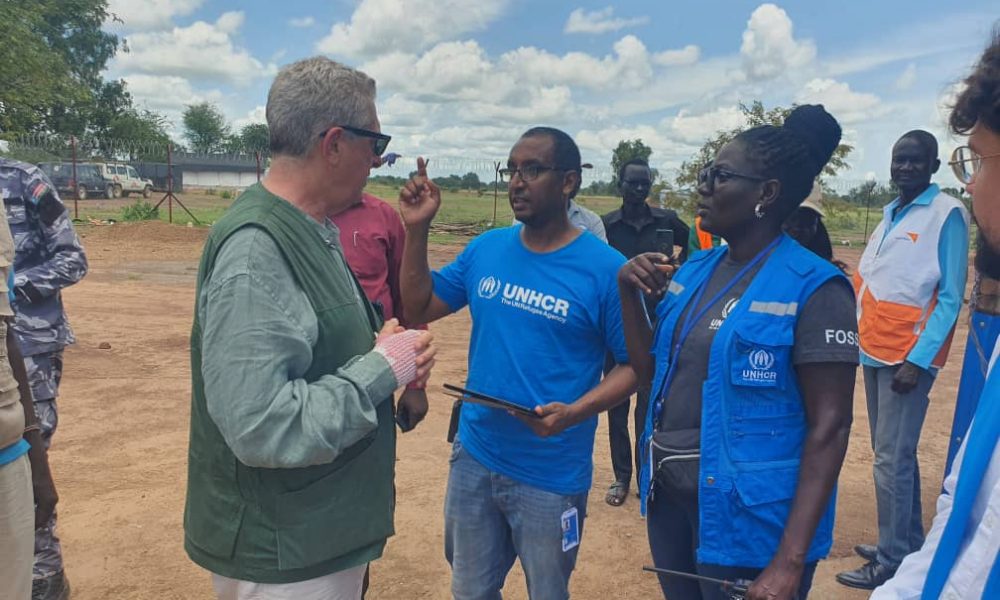By Ngor Deng Matem
UN High Commissioner for Refugee hails the government of South Sudan for opening its borders to welcome Sudanese refugees and third-country nationals fleeing the Sudan War.
UNHCR boss, Filippo Grandi, who is in the country for a three-day tour had visited refugees of the four-month-long war raging in the neighboring Republic of Sudan.
He visited the WedWiel Refugees resettlement camp in Northern Bahr El Ghazal State-Aweil (NBGs), which is currently housing over 8,000 Sudanese refugees.
On Sunday, the UNHCR chief interacted with the refugees and local and state authorities in the NBGs, where he appreciated South Sudan for allowing the refugees to seek refuge in the country that is still recovering from conflict itself and struggling with climatic catastrophe.
“I was really amazed by the fact that the government of South Sudan, specifically the government of Northern Bahr El Ghazal state here, was so generous in allocating land from local communities for the refugees arriving from Sudan and keeping the borders open,” he noted.
Filippo also lauded the local and state authorities for allowing the operation of humanitarian organizations to be deployed in trying to help people who fled the terrible situation in Sudan.
“In spite of the challenges, this country has kept the doors of its borders open to allow the people fleeing the violence to have land to start self-reliance,” he underscored.
However, the UN refugee chief stressed the need for resources to alleviate the dire situation of the war escapees.
“We need resources. I am here to tell the world that almost a million people have left Sudan. We saw some of them (refugees) here in Aweil today. I will see more of them next week in Chad. I was in Egypt, and I saw some,” Filippo lamented.
He appealed to the world to support the Sudanese refugees.
Earlier this week, the regional director of UNHCR for East and Horn Africa visited the WedWiel Refugees resettlement camp and listened to the challenges facing the refugees there.
Meanwhile, the refugees have been complaining of shortages of food, health services, education, and water.
There are already more than 8,300 refugees who have arrived at the WedWiel settlement area in northern Bahr El Ghazal state.




